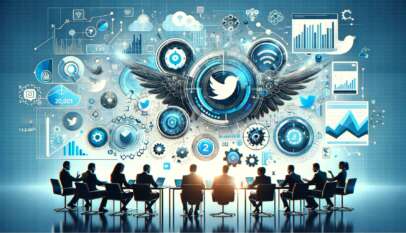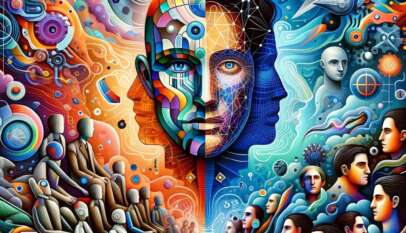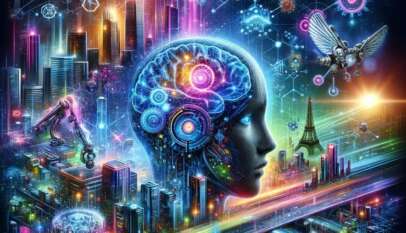A Necessary Introduction
✅ One of the greatest concepts being applied in computer science is the concept of abstraction. Initially, computers were programmed in binary language, dealing directly with 0s and 1s. Then came assembly language, translating programming instructions written in letters and numbers into machine language. Following this were high-level languages like C and Java, eliminating the need to understand machine language to write computer programs.
✅ Then came operating systems, adding another layer of abstraction. You no longer needed to be a programming engineer to interact with a machine. The operating system handles hardware interactions, and programmers write software, allowing users to interact with the operating system and its applications without needing to understand the underlying programming and engineering complexities.
Some Old News
✅ In 2005, Google acquired Android as an operating system for mobile devices for $50 million, kept it open-source, allowing any phone company to use it. This created a new abstraction layer, enabling programmers to develop applications for these devices and establishing a complete ecosystem with the Play Store, libraries, SDKs, and continuously updated documentation. In 2022, its income from applications and games reached about $42 billion.
✅ In 2019, Bill Gates stated that his biggest mistake was allowing Google to develop Android, costing Microsoft around $400 billion!
✅ On March 21, Bill Gates revealed that he has been meeting with people from OpenAI since 2016.
✅ According to CrunchBase, Microsoft is the largest investor in OpenAI, with total investments of around $11 billion, far surpassing any other investor, including heavyweights like Sequoia and Y Combinator. This funding is used for R&D activities, service operations, and, as one report suggests, ChatGPT alone costs about $100,000 per day to run!
Currently, OpenAI is trying to find the best monetization models. Up to now, I have identified three income sources they are experimenting with, plus one revolutionary source that seems to be on the way.
✅ The first and primary stream is income from using various GPT model APIs on a Pay as you go basis. The company offers APIs for different use cases, allowing other companies to integrate these models into their applications, with billing per thousand tokens used. Some of the prominent companies mentioned on their website include Stripe, Intercom, Instacart, etc.
✅ The second stream, which emerged after the momentum created by ChatGPT and which I believe is still experimental, resembles the income model of hosting companies. It is the launch of a platform for developers named Foundry, allowing them (mostly large companies) to have like private servers for each client with full control over the models and the ability to handle high workloads. Think of it as a VPS or dedicated server instead of using shared APIs with their rate limits.
✅ The third is the GPT Plus subscription, targeting individuals. You pay a monthly subscription to use the latest GPT-4 model that supports writing, images, and sound, without slowdowns during peak times.
✅ In my estimation, the next big thing, still in its infancy and likely directed by Bill Gates to correct his old mistake with Android, is a new layer of abstraction. Building a complete ecosystem around AI, similar to Google and Apple, through a marketplace for plugins that work on top of their models. This includes tools and programs for developers to create and monetize them. If I let my imagination run wild, we could even be talking about a new type of operating systems or cloud platforms.
✅ I don’t think Google will let them monopolize this field. Just as Google competed with Apple in phone operating systems, applications, and games, they will likely compete with OpenAI in the new AI platform industry.
This is just the beginning, and it’s full of problems and challenges. But if OpenAI can solve the minimum required of it, we are witnessing the true beginning of the fifth industrial revolution, the birth of a new giant among the big players, which may displace some of them or at least push them down the ladder!
What can we benefit from, or what should we do?
✅ I see that if the marketplace idea succeeds, it will be a revolutionary leap, like being at the beginning of Google’s and Apple’s stores. Developers need to start working and understanding more about this nascent ecosystem. Those who enter early and manage to create something useful will be very happy. Even when there are competitors to OpenAI, those who start are the ones who set the standards, and what you do here, you can do there.
✅ Companies need to start exploring how they can join early and benefit from the AI capabilities that are just beginning to grow. Currently, we talk about digital transformation, and companies without an online presence are as if they don’t exist. In ten years, those who don’t use AI in their business in one way or another won’t be on the map. Then, we will be talking about AI Transformation.
✅ Ordinary individuals need to learn more about what artificial intelligence is, its uses, how to benefit from it, its risks, and where to evaluate and learn it. Just as we talked about eradicating illiteracy in reading and writing, and then computer literacy, soon those who don’t know the basics of AI and use it in their work will be considered ignorant, regardless of their profession or job.
Unveiling the 3 Pillars of Stellar Product Management!
In the dynamic world of business, the heartbeat of a product’s success and its rippl…





